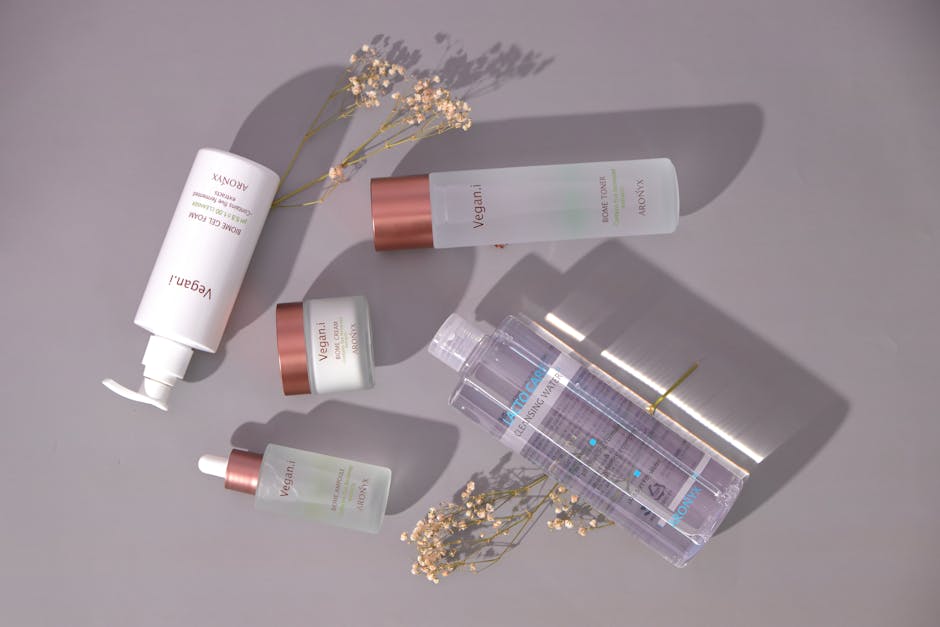Understanding Your Skin’s Thirst for Plant-Based Care
Vegan skincare for dry skin combines plant-powered hydration with cruelty-free ethics to deliver relief for parched, flaky complexions. If you’re looking for effective plant-based solutions for dry skin, here’s what you need to know:
- Best vegan ingredients: Hyaluronic acid, glycerin, jojoba oil, argan oil, shea butter, vitamin E
- What to avoid: Animal-derived squalene (from sharks), lanolin (from sheep), beeswax, carmine
- Key certifications: Look for Leaping Bunny, Vegan Society, PETA-certified logos
When your skin feels tight, itchy, or shows visible flaking, it’s crying out for moisture. Many conventional skincare products contain animal-derived ingredients that might provide temporary relief but don’t address the root causes of dryness. Plant-based alternatives offer gentle yet effective hydration without harsh chemicals.
As one user reported about a vegan body butter: “It healed my family’s eczema and balanced extremely dry skin—more effective than many prescribed creams.” This experience isn’t uncommon, as vegan formulations often focus on barrier repair and deep hydration.
The shift toward vegan skincare isn’t just a trend—it’s a recognition that plant-derived oils and butters can mimic or reinforce our skin’s natural moisture barrier without animal exploitation. Clinical studies show that phytoglycogen, a key plant-based ingredient, provides 60% more moisture after seven hours of use compared to conventional hydrators.

Find more about Vegan skincare for dry skin:
– Vegan skincare for oily skin
– Vegan skincare for sensitive skin
Why Vegan Skincare Is a Dry-Skin Game-Changer
If you’ve been struggling with persistent dryness, vegan skincare might be the solution you’ve been searching for. Plant-based formulations offer unique benefits that make them particularly powerful for parched skin.
Think of plant-based lipids as your skin’s long-lost cousins. They’re structurally similar to your natural oils, which means they don’t just sit on top of your skin—they actually integrate with your skin barrier. Jojoba oil is the perfect example: it’s almost identical to human sebum, making it incredibly effective at replenishing what dry skin lacks without that greasy feeling.
Omega-rich plant oils work wonders for strengthening your skin’s protective barrier. Flaxseed, hemp, and evening primrose oils deliver essential fatty acids that help seal in moisture. According to scientific research on dry skin causes, a compromised barrier is one of the main culprits behind chronic dryness.
The gentle nature of vegan formulations is another major plus. Instead of harsh alcohols or synthetic fragrances that can strip your skin further, plant-based products often include soothing botanicals like aloe vera, chamomile, and calendula. These ingredients calm while they hydrate—a double win for irritated dry skin.
There’s also something to be said for the cruelty-free ethos behind vegan skincare. These products are developed without animal testing, which often leads to more thoughtful formulation. You can learn more about the Benefits of Plant-Based Skincare on our dedicated page.
Dry vs Dehydrated: Spot the Difference
Dry skin lacks oil and is essentially your skin type, determined by genetics and hormones. If you have perpetually flaky patches, small pores, and skin that never feels oily (even in your T-zone), you’re likely dealing with true dryness.
Dehydrated skin lacks water and can happen to anyone, even those with naturally oily skin. The telltale signs? That uncomfortable tightness after washing your face, increased sensitivity, and a dull complexion with more pronounced dark circles.
Here’s a simple test: gently pinch your cheek. If your skin takes a moment to bounce back and shows fine lines during the pinch, you’re likely dehydrated. If you see flakiness and roughness regardless of how much water you drink, you’re probably dealing with true dryness.
How Vegan Formulas Soothe Redness & Itch
Phytoglycogen, a plant-derived alternative to animal-based glycogen, delivers an impressive 60% moisture boost after just seven hours. Beyond hydration, it helps calm the inflammation that makes your dry skin so irritated and red.
Oat derivatives are another vegan superstar for irritated skin. Oat oil and colloidal oatmeal contain natural compounds called avenanthramides that actively reduce itching and redness while reinforcing your skin barrier.
Plant-based ceramide analogues derived from wheat, rice, or sweet potatoes are excellent alternatives to animal-derived ceramides. These lipids are crucial—they’re like the mortar between the bricks of your skin cells, preventing moisture from escaping.
Must-Have Hydrators & Ingredients to Dodge
When it comes to vegan skincare for dry skin, understanding the three essential types of moisturizing ingredients will revolutionize your hydration game:
- Humectants are your water magnets, pulling moisture from the air and deeper skin layers to the surface
- Emollients act as your skin smoothers, filling cracks between cells for that soft, supple feeling
- Occlusives serve as your moisture bodyguards, creating a protective barrier to prevent water loss
The magic happens when you find vegan products containing this powerful trio working in harmony.
Seek These Vegan Hydration Heroes:
Your dry skin will drink up glycerin, a plant-derived moisture magnet that science truly champions. According to research in the Journal of Cosmetic Dermatology, it’s “the most effective humectant” available today. This unassuming ingredient quietly draws moisture into your skin and helps it stay there all day long.
Hyaluronic acid deserves its stellar reputation as a hydration superstar. This naturally occurring substance holds up to 1000 times its weight in water! Modern versions are produced through bacterial fermentation, making them completely vegan-friendly while delivering that plump, dewy finish dry skin craves.
Jojoba oil is nature’s gift to dry skin—it’s remarkably similar to your skin’s natural sebum, helping regulate moisture without that heavy, greasy feeling. It softens rough patches while letting your skin breathe.
For intense nourishment, argan oil delivers vitamin E and fatty acids that strengthen your skin’s natural barrier. This Moroccan treasure helps repair extremely dry, damaged skin with consistent use.
When you need serious protection, shea butter creates a gentle shield while delivering vitamins and healing fatty acids. Unlike petroleum-based occlusives, this plant-based alternative works with your skin rather than simply sitting on top of it.
Skip These Problematic Ingredients:
Be vigilant about animal-derived squalene lurking in conventional moisturizers—it often comes from shark liver oil. Instead, reach for plant-derived squalane from olives or sugarcane that provides the same silky moisture without the ethical concerns.
Lanolin might be effective for dryness, but this sheep’s wool derivative isn’t necessary when plant waxes and butters work just as beautifully.
Though natural, beeswax isn’t vegan. Fortunately, candelilla wax, carnauba wax, or plant-based synthetic alternatives create the same protective barrier without compromising your values.
Watch out for drying alcohols like denatured alcohol, ethanol, and isopropyl alcohol—they’re moisture vampires that can leave already parched skin even thirstier.

Vegan Skincare for Dry Skin: Ingredient Cheat-Sheet
Plant-derived Vitamin E (Tocopherol) works as both moisturizer and protector, shielding your skin from environmental damage while providing deep hydration.
Vitamin C brightens the dullness that often accompanies dry skin while reinforcing your moisture barrier. Stable forms like sodium ascorbyl phosphate or ethyl ascorbic acid in the 10-15% range deliver results without irritation.
Lactic acid offers the unique double benefit of gentle exfoliation and hydration. Modern formulations derive it from fermented plant sources rather than milk, making it perfect for vegan skincare routines.
Evening Primrose Oil delivers gamma-linolenic acid (GLA) that reduces inflammation while strengthening your skin’s natural barrier. It’s particularly effective for chronically dry, sensitive skin that needs both immediate relief and long-term repair.
The Ultimate Product Roundup: Vegan All-Stars for Deep Hydration
Now that we understand the science behind vegan skincare for dry skin, let’s explore the essential products for a complete hydrating routine.

Best Cleansers for Vegan Skincare for Dry Skin
Cleansing is where many dry skin journeys go wrong. That squeaky-clean feeling? It’s actually your skin crying out for moisture! The right vegan cleanser should leave your face feeling soft and comfortable, never tight or stripped.
Oil-based cleansing balms are absolute game-changers for parched complexions. These buttery formulas melt away makeup and daily grime while infusing skin with nourishing plant oils like sunflower, olive, or jojoba.
If you prefer something lighter, look for oil-in-milk cleansers that combine the makeup-removing power of plant oils with the soothing properties of botanical milks. These gentle formulations are perfect for both morning freshening and evening cleansing without disrupting your skin’s delicate moisture balance.
For those who just can’t give up the refreshing feel of a gel, opt for low-pH formulations (around 5.5) that respect your skin’s natural acid mantle. Check out more about Clean Beauty Skincare to guide your choices.
Serums & Boosters: Concentrated Vegan Skincare for Dry Skin
Think of serums as the power players in your hydration game—concentrated formulas that deliver active ingredients exactly where your thirsty skin needs them most. For maximum benefit, always apply to slightly damp skin after cleansing.
Multi-weight hyaluronic acid serums are dry skin’s best friend. These clever formulations contain different molecular sizes of hyaluronic acid—smaller molecules dive deep into skin while larger ones create immediate surface hydration.
Vitamin C deserves a permanent spot in your routine, especially if dryness has left your complexion looking dull. Look for stable forms like sodium ascorbyl phosphate in the 10-15% range—enough to brighten without irritating sensitive dry skin.
Barrier repair is crucial for chronically dry skin, which is where niacinamide (vitamin B3) shines. At a gentle 5% concentration, it boosts ceramide production, reduces redness, and helps your skin retain moisture better over time.
Creams & Oils That Seal the Deal
After applying water-attracting serums, you need to lock in all that goodness with emollient creams and occlusive oils.
Ceramide-rich moisturizers are non-negotiable for seriously dry skin. These plant-derived lipids (from wheat, rice, or sweet potatoes) mimic your skin’s natural mortar, strengthening the barriers between skin cells to prevent moisture from escaping.
Omega-rich face oils provide essential fatty acids that dry skin struggles to produce on its own. Evening primrose, hemp seed, and flaxseed oils deliver omega 3, 6, and 9 fatty acids that nourish on a cellular level.

If your skin is extremely parched, try the “sandwich method”—a light moisturizer, followed by a few drops of facial oil, sealed with another layer of moisturizer. This creates multiple barriers against moisture loss, especially helpful during harsh winter months or in dry climates.
Extras: Masks & SPF
Instead of traditional sheet masks (which often contain microplastics), look for bio-cellulose or hydrogel masks made from plant materials. These eco-friendly alternatives deliver intense hydration without environmental harm.
Weekly gentle exfoliation with a 5-10% lactic acid mask (derived from fermented plant sugars) helps remove flaky patches while simultaneously hydrating the fresh skin beneath.
Finally, never skip sun protection! UV damage breaks down collagen and elastin over time, compromising your skin barrier and exacerbating dryness. Non-nano zinc oxide sunscreens (SPF 30+) provide broad-spectrum protection without irritating ingredients.
Barrier Repair & Lifestyle Hacks to Keep Flakes Away
Taking care of dry skin isn’t just about what you put on your face—it’s about creating an environment where your skin can thrive.
Shower Smarter
That steamy hot shower might feel amazing, but it’s secretly sabotaging your skin barrier. I learned this the hard way after wondering why my skin felt like sandpaper despite religious moisturizing!
Dermatologists recommend keeping showers lukewarm and brief—aim for 10 minutes max. When you step out, gently pat (don’t rub!) your skin dry, leaving it slightly damp. This is your golden moment—apply your moisturizer within 3 minutes while your skin is still moist to trap that precious hydration.
Environmental Adjustments
Your skin is constantly responding to its environment, especially during dry winter months or if you live in a desert climate. A good humidifier in your bedroom can be a game-changer—aim for 40-60% humidity for that sweet spot where skin thrives without creating a tropical rainforest in your home.
If you work from home, consider a small desktop humidifier for your workspace too. And that cozy spot right next to the heater? It’s slowly turning your skin into parchment. Try to maintain some distance from direct heat sources and air conditioning vents that suck moisture from your skin.
Fabric Choices Matter
Choose gentle, breathable fabrics like organic cotton or bamboo for clothing that regularly touches your face. Your pillowcase deserves special attention—silk or satin options create less friction and absorb less of your skin’s natural moisture overnight.
Nutrition for Skin Hydration
Focus on omega-3 rich foods like flaxseeds, walnuts, and hemp seeds that help strengthen your skin’s moisture barrier. Hydrating fruits and vegetables—cucumber, watermelon, oranges—deliver water directly to your cells.

During colder months, warming soups and stews provide deep hydration that lasts longer than simply drinking water. Your skin will thank you for this nourishment from within.

These lifestyle adjustments complement your vegan skincare routine, creating a holistic approach to dry skin management. For more targeted advice on creating a minimalist routine that works year-round, check out our guide on How to Create a Minimalist Skincare Routine for Dry Winter Skin.
Frequently Asked Questions about Vegan Skincare for Dry Skin
Is vegan skincare safe for eczema-prone dry skin?
Absolutely! Vegan skincare can be a wonderful option for those struggling with eczema-prone dry skin. Many people find plant-based formulations less irritating than conventional products—but ingredients still matter tremendously.
If you’re dealing with eczema, look for products bearing the National Eczema Association Seal of Acceptance. This certification indicates the formula has been evaluated and found free of common irritants that might trigger flare-ups.
Your skin will likely thank you for incorporating gentle vegan ingredients like colloidal oatmeal, calendula extract, and plant oils rich in essential fatty acids like evening primrose, hemp seed, and shea butter. These ingredients help rebuild your skin barrier while providing deep hydration.
One particularly moving testimonial shared: “It healed my family’s eczema and balanced extremely dry skin—more effective than many prescribed creams.” While this won’t be everyone’s experience, it shows the potential of thoughtfully formulated vegan skincare for dry skin.
Always conduct a patch test on a small area for 24-48 hours before applying a new product all over your face or body. Your skin is unique, and what works beautifully for others might not be your perfect match.
How can I tell if a product is truly vegan and cruelty-free?
Navigating the sometimes murky waters of beauty marketing claims requires a bit of detective work. To ensure you’re getting genuine vegan skincare for dry skin, look beyond the front-label promises.
Start with trusted third-party certifications—these are your best assurance. The Vegan Society’s Vegan Trademark, Leaping Bunny certification, and PETA’s Beauty Without Bunnies program all require companies to meet specific standards.
Always scan the ingredient list with a critical eye. Common animal-derived ingredients to watch for include beeswax (sometimes listed as cera alba), lanolin from sheep’s wool, carmine (a red colorant from insects), and squalene (unless specifically labeled as plant-derived).
“Cruelty-free” only addresses animal testing practices—not ingredient sourcing. A product can be cruelty-free but still contain animal-derived ingredients. For true vegan skincare, you need both attributes.
Do vegan moisturizers work better than conventional ones?
A moisturizer’s effectiveness depends more on its specific formulation than simply whether it’s vegan or conventional. That said, well-formulated vegan skincare for dry skin offers several compelling advantages.
Many plant oils have molecular structures remarkably similar to our skin’s natural sebum. Jojoba oil is the superstar example—it so closely resembles human sebum that it can integrate seamlessly with our skin’s barrier. This natural affinity often translates to better absorption and effectiveness.
Plant ingredients typically bring bonus benefits to the hydration party. Beyond just moisturizing, they deliver antioxidants, vitamins, and phytonutrients that support overall skin health.
Vegan formulations frequently feature cleaner, more streamlined ingredient lists. This minimalist approach often means fewer potential irritants—a significant benefit for sensitive, dry skin types who need gentle yet effective care.
The science backs this up too. Clinical studies have shown that specific vegan ingredients like phytoglycogen provide 60% more moisture after seven hours compared to some conventional hydrators.
Conclusion & Next Steps
Embracing vegan skincare for dry skin isn’t just a compassionate choice—it’s a genuinely effective approach to achieving lasting hydration and comfort. Throughout this guide, we’ve seen how plant-powered ingredients can transform parched, flaky skin into a smooth, nourished complexion without relying on animal-derived components.
Your journey toward healthier skin starts with understanding what your skin truly needs. Is it genuine dryness, dehydration, or perhaps both? Once you’ve identified your specific concerns, you can build a routine around products that offer multiple hydration mechanisms—those wonderful humectants that attract water, emollients that smooth rough patches, and occlusives that lock moisture in where it belongs.
The real magic happens when you prioritize ingredients that repair and strengthen your skin’s natural barrier. Think plant-derived ceramides, omega-rich fatty acids, and gentle exfoliants that work with your skin rather than against it.
True skin change comes from a holistic approach. From gentle cleansing to intensive moisturizing, each step matters—and so do the environmental factors around you. A humidifier during dry winter months can be just as important as that luxurious face oil you’ve invested in.
At Beyond Beauty Lab, we firmly believe that effective skincare doesn’t require animal ingredients or testing. Mother Nature has already provided everything we need to nourish even the thirstiest skin, often with wonderful bonus benefits like antioxidant protection and a lighter environmental footprint.
Be patient with your skin journey. New products need time to show their full potential—typically 4-6 weeks—and your routine may need seasonal adjustments as your skin’s needs change.
Ready to transform your dry skin with plant-powered hydration? Your path to comfortable, radiant skin begins with compassionate choices that benefit both you and our planet.
Find more about clean beauty skincare
Learn how to create a minimalist skincare routine for dry winter skin







